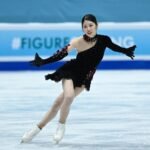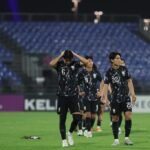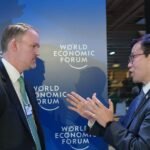As a Korean American, born in the United States in 1977, I have a unique perspective on the history of my family and the Korean community in America. My father, born in 1948, served in the Vietnam War alongside the United States. He experienced the Korean War in 1950, just 18 years after Korea gained its independence. Having known only war, he still came to America and became a pioneer, establishing one of the first Korean grocery stores on Broad Avenue and helping to create the Korean community in the New York City tri-state area.
My great-great-grandfather was also one of the thirty-three signatories of the Proclamation of Independence, signed on March 1, 1919, also known as the March First Movement or Samil. Growing up in the 1980s in North Jersey, I experienced racism firsthand. I still bear a scar on my face from an incident where a little girl punched and scratched me. Every day, looking in the mirror, I am reminded of the racism that existed during that time. Hearing my parents being called derogatory names like “chink” and “gook” was difficult for me as a child. However, it also taught me the importance of advocacy and standing up against injustice.
I am genuinely astounded by the fact that the world has come to love Korea in the past two decades. However, it is disheartening to realize that many people, including Korean Americans, are not aware of our history and rise. The March 1st Movement holds immense significance in Korea, even predating our independence from Japan. During the Japanese occupation, our language, culture, and people were suppressed, but our spirit of self-determination remained unyielding. The Korean Proclamation of Independence, despite all the atrocities we endured, did not place blame on Japan. Korea has always yearned for self-determination, not handouts, but the freedom to work hard and achieve our goals. While I am immensely proud of all Koreans, I am also disappointed by the lack of action and interest in learning about our history.
We can do better. 🇰🇷🇺🇸
The world’s worst atrocity no one knows about …. “The war brought about 3.5 million Korean casualties making it “the most brutal war of the 20th century, measured by the intensity of violence and per capita civilian death.” https://newrepublic.com/article/163503/case-against-humane-war-book-review-samuel-moyn?link_id=6&can_id=acde15935346022ca37d70aab33bcfda&source=email-connecting-aapi-heritage-month-and-korea-peace-kpngn-may-2024-newsletter&email_referrer=email_2307950&email_subject=connecting-aapi-heritage-month-and-korea-peace-kpngn-may-2024-newsletter
submitted by /u/sandria8
[link] [comments]















